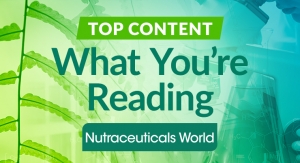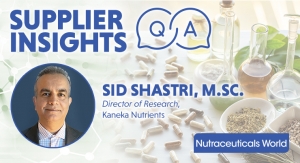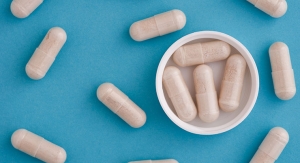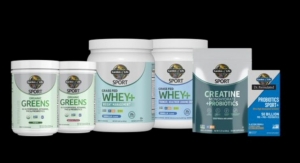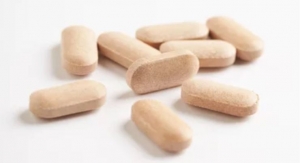Alan Richman, Contributing Writer10.01.14
Are we ever going to figure out how the brain works?” Gary Marcus, an NYU professor of psychology, posed this question July 11 in an op-ed piece in The New York Times. His answer was far from hopeful.
Definitive knowledge in this area is elusive, given that the brain is a physical structure but its functions are extra-physical, extending into the realms of psychology and philosophy. Prof. Marcus suggested that neuroscience must await a breakthrough similar to the discovery of DNA, at which time we may be able to describe the “lawful relation between assemblies of neurons and the elements of thought.”
At this point, however, he suggested, not even the recent launching of two ambitious brain research programs—one by the Obama Administration and the other by the European Commission—is likely to achieve full understanding in the foreseeable future (see accompanying sidebar below).
Nevertheless, even in the absence of complete knowledge about how the brain functions, much has been researched and deduced, prompting development of nutritional ingredients that may help guard against memory loss and sharpen reasoning speed and power (see Ingredient Roundup sidebar below).
Big Problem, Big Opportunity
Broadly speaking, “cognitive issues are divided into two segments: brain decline and emotional decline,” said Kathy Lund, vice president of business development and marketing, for AIDP, Inc., City of Industry, CA. “Brain decline includes diseases such as Alzheimer’s and dementia, but also lack of focus and brain fog. Emotional decline is caused by anxiety and stress resulting in poor sleep, anger or the inability to concentrate.”
Overall, said Ms. Lund, “The cognitive health category is very strong and is emerging as one of the fastest growing categories in the nutrition field. A recent Datamonitor report indicated the segment is growing over 11% while SPINS indicated growth at 13%.”
In an article published in May, Diana Cowland, senior health and wellness analyst for Euromonitor International, noted, “The number of individuals with dementia continues to grow. The Alzheimer’s Society in the U.K. estimated that one in 14 people aged 65 and older has some form of dementia; if this figure is applied to the global population, more than 51 million people could have dementia in 2018. This is no small target audience.”
“Major depressive disorders are a potentially debilitating illness, and are currently the leading cause of claims for long-term sickness benefits in the U.K., with an estimated cost of £13 billion a year,” said Greg Weatherhead, lead applications scientist for Croda Europe Ltd., headquartered in East Yorkshire.
The figures in the U.S. are even more alarming. “More than 5 million Americans currently have Alzheimer’s, and it is estimated this number will double or even triple by 2050,” said Becky Wright, marketing director for Aker Biomarine, Issaquah, WA. According to Ms. Wright, this memory-robbing disease is already considered the most expensive condition in the U.S., predicted to account this year alone for direct costs of about $214 billion. “In the developed world, the cost related to mental disorders is now greater than the cost related to coronary heart disease and cancer combined,” she said.
“One of the largest cost drivers related to dementias are the costs of institutional or home-based long-term care, which represent up to 84% of attributable costs,” said Eric Ciappio, PhD, RD, scientific leader of DSM Nutritional Products, Parsippany, NJ.
And how does one even begin to calculate the costs associated with the estimated 17.7 billion hours of care from unpaid caregivers, asked Elzaphan Hotam, CEO of Morristown, NJ-based Enzymotec USA Inc.
Not All the Prospects Are Old
While cognitive issues often are associated with aging and, to a lesser extent with prenatal nutrition, Seth Flowerman, director of business development for PLT Health Solutions, Morristown, NJ, also identified another aspect of the market—people in the 18-65 age group seeking help to achieve peak performance.
“This shouldn’t come as much of a surprise considering the competitive nature of our global society and the increased mental demands of the information age,” said Mr. Flowerman. Citing recent U.S. Department of Education statistics, he said there are about 22 million college and university students throughout the nation.
And, he added, studies show that there will be more than 100 million knowledge workers in the U.S. (Infotrends, 2011). Combined, these groups represent more than 40% of the U.S. population. “This indicates a vast need and market opportunity for support of cognitive performance related to study and work,” Mr. Flowerman said.
Younger children, too, could benefit from brain support nutraceuticals, said Enzymotec’s Mr. Hotam. He cited a report from the Centers for Disease Control and Prevention (CDC) that indicated “11% of children 4-17 years of age have been diagnosed with ADHD with an estimated cost of illness of around $50 billion.”
What may kids this young expect? Better reading scores, perhaps, said Croda’s Mr. Weatherhead. He described one study funded by Martek Biosciences (since acquired by DSM) in which 493 schoolchildren aged 7–9 years from mainstream Oxfordshire schools were participants. They were selected for below average reading performance in national assessments.
In general, Mr. Weatherhead said, the study’s subjects were demonstrably low in concentrations of docosahexaenoic acid (DHA) and other omega-3 long-chain polyunsaturated fatty acids (LC-PUFAs). He noted that these low concentrations “directly related to measures of cognition and behavior.”
While he acknowledged that these findings require confirmation, Mr. Weatherhead suggested the benefits from dietary supplementation with omega-3 LC-PUFA found for ADHD, dyspraxia, dyslexia and related conditions might extend to the general school population.
Melanie Bush, director of berry science, Artemis International, Inc., Fort Wayne, IN, cited an animal study that found improved spatial memory performance and a faster rate of learning in young subjects.
“We are seeing an increasing movement of ‘eating clean’ sweeping the nation among younger individuals as they recognize the tie between long-lasting health and natural foods/supplements. Berries have the potential to appeal to a younger crowd as they are a simple, familiar and tasty way to achieve major brain benefits,” she said.
Pharma vs. Natural
Given the vast and growing nature of the cognitive performance problem, as well as the market opportunity, it’s no wonder that both pharmaceutical manufacturers and developers of nutraceutical products are aggressively seeking answers.
“Pharmaceuticals are typically prescribed in response to an issue—they are reactive drugs and are often aimed toward particular symptoms,” said Ms. Bush. “Natural dietary supplements can be taken proactively (and often without side effects) beginning at a young age to help prevent deterioration, and to help strengthen our bodies and maintain a healthy state.”
It also must be remembered that “by regulatory definition, supplements are not intended to diagnose, treat or cure disease,” said Kristine V. Lukasik, PhD, director of scientific and regulatory affairs for the Food & Nutritional Ingredients division of New Hampton, NY-based Balchem Corporation.
She added, however, “Supplements may be useful when the type of normal age-related cognitive dysfunction in question is modulated by sufficiency of a biological precursor (e.g., tryptophan, choline, tyrosine).”
At Montreal-based Lallemand Health Solutions, marketing group manager Bérengère Feuz said, “As far as probiotics are concerned, an animal model study has shown a real anxiolytic-like effect very comparable to Diazepam, but without the usual side effects associated with CNS (central nervous system) drugs. A pharmacological study has confirmed that, despite its positive effects on behavior and psychological distress, Lallemand’s Probio’Stick did not create any pharmaco-dependence as observed with chemical anxiolytic drugs, while displaying comparable effects in an animal model.”
Similarly, Thomas Ughetto, business unit manager for Naturex Inc., South Hackensack, NJ, said strong side effects have been associated with use of some drugs, “and many cases of addiction have been reported.”
For Sybille Buchwald-Werner, PhD, CEO of Germany’s Vital Solutions GmbH, the key question is whether or not there is an illness present. In her view, food supplements should be used to keep physiological functions in balance or to help bring them back to a healthy state.
Intended to support healthy people, these natural ingredients may help “to reduce all types of discomfort and/or to improve performance” or to support alertness, memory and mental focus, she said. “They may even have beneficial effects to reduce or postpone the development of age-related disease, but if one has already developed a disease then pharmaceutical drugs are required.”
Coming Attractions
Restrictions aside, experts have predicted continued growth for the brain health category. Citing a study commissioned by the National Institute on Aging, Laura King, RD, Columbia, MD-based marketing manager for DSM Nutritional Products, emphasized that by 2017, half of the U.S. population will be over 50 years old, and about 10% of people over the age of 70 develop at least mild cognitive impairment.
That alone represents a huge market—approximately 33 million people based on an expected total population of more than 328 million three years from now. Ms. King also cited “continued interest in the role omega-3s play not only in cognition, but also in concussion treatment and prevention.” Thus, children and young adults also present strong sales potential.
Enzymotec’s Mr. Hotam agreed, saying seniors and prenatal are established market segments, but there hasn’t been much growth in recent years. “We believe market growth may come from children, students and young professionals—age groups poorly served with efficacious and healthy nutrients, while facing an increasing need to support healthy cognitive and mental performance.”
Mr. Flowerman of PLT Health Solutions said, “There is remarkable room for growth in this area—particularly in the area of cognitive performance related to study and work. We see the market for what we call ‘peak performance’ as an area where product developers will increasingly focus when it comes to cognitive health.”
There is statistical support for these projections. In a fact sheet released in January 2013, AIDP reported on surveys conducted by the American Association of Retired People (AARP) and ASA-MetLife Foundation. Findings indicated that “nearly nine out of 10 consumers believe it is possible to improve cognitive fitness, and more than four out of five people older than 50 say ‘staying mentally sharp’ is their number 1 concern. A deteriorating mental state concerns Baby Boomers more than death itself.”
Alan Richman, former editor/associate publisher of Whole Foods Magazine, is now a full-time freelancer focusing on the health and nutrition industry. He can be reached at alanrichman@yahoo.com.
Definitive knowledge in this area is elusive, given that the brain is a physical structure but its functions are extra-physical, extending into the realms of psychology and philosophy. Prof. Marcus suggested that neuroscience must await a breakthrough similar to the discovery of DNA, at which time we may be able to describe the “lawful relation between assemblies of neurons and the elements of thought.”
At this point, however, he suggested, not even the recent launching of two ambitious brain research programs—one by the Obama Administration and the other by the European Commission—is likely to achieve full understanding in the foreseeable future (see accompanying sidebar below).
Nevertheless, even in the absence of complete knowledge about how the brain functions, much has been researched and deduced, prompting development of nutritional ingredients that may help guard against memory loss and sharpen reasoning speed and power (see Ingredient Roundup sidebar below).
Big Problem, Big Opportunity
Broadly speaking, “cognitive issues are divided into two segments: brain decline and emotional decline,” said Kathy Lund, vice president of business development and marketing, for AIDP, Inc., City of Industry, CA. “Brain decline includes diseases such as Alzheimer’s and dementia, but also lack of focus and brain fog. Emotional decline is caused by anxiety and stress resulting in poor sleep, anger or the inability to concentrate.”
Overall, said Ms. Lund, “The cognitive health category is very strong and is emerging as one of the fastest growing categories in the nutrition field. A recent Datamonitor report indicated the segment is growing over 11% while SPINS indicated growth at 13%.”
In an article published in May, Diana Cowland, senior health and wellness analyst for Euromonitor International, noted, “The number of individuals with dementia continues to grow. The Alzheimer’s Society in the U.K. estimated that one in 14 people aged 65 and older has some form of dementia; if this figure is applied to the global population, more than 51 million people could have dementia in 2018. This is no small target audience.”
“Major depressive disorders are a potentially debilitating illness, and are currently the leading cause of claims for long-term sickness benefits in the U.K., with an estimated cost of £13 billion a year,” said Greg Weatherhead, lead applications scientist for Croda Europe Ltd., headquartered in East Yorkshire.
The figures in the U.S. are even more alarming. “More than 5 million Americans currently have Alzheimer’s, and it is estimated this number will double or even triple by 2050,” said Becky Wright, marketing director for Aker Biomarine, Issaquah, WA. According to Ms. Wright, this memory-robbing disease is already considered the most expensive condition in the U.S., predicted to account this year alone for direct costs of about $214 billion. “In the developed world, the cost related to mental disorders is now greater than the cost related to coronary heart disease and cancer combined,” she said.
“One of the largest cost drivers related to dementias are the costs of institutional or home-based long-term care, which represent up to 84% of attributable costs,” said Eric Ciappio, PhD, RD, scientific leader of DSM Nutritional Products, Parsippany, NJ.
And how does one even begin to calculate the costs associated with the estimated 17.7 billion hours of care from unpaid caregivers, asked Elzaphan Hotam, CEO of Morristown, NJ-based Enzymotec USA Inc.
Not All the Prospects Are Old
While cognitive issues often are associated with aging and, to a lesser extent with prenatal nutrition, Seth Flowerman, director of business development for PLT Health Solutions, Morristown, NJ, also identified another aspect of the market—people in the 18-65 age group seeking help to achieve peak performance.
“This shouldn’t come as much of a surprise considering the competitive nature of our global society and the increased mental demands of the information age,” said Mr. Flowerman. Citing recent U.S. Department of Education statistics, he said there are about 22 million college and university students throughout the nation.
And, he added, studies show that there will be more than 100 million knowledge workers in the U.S. (Infotrends, 2011). Combined, these groups represent more than 40% of the U.S. population. “This indicates a vast need and market opportunity for support of cognitive performance related to study and work,” Mr. Flowerman said.
Younger children, too, could benefit from brain support nutraceuticals, said Enzymotec’s Mr. Hotam. He cited a report from the Centers for Disease Control and Prevention (CDC) that indicated “11% of children 4-17 years of age have been diagnosed with ADHD with an estimated cost of illness of around $50 billion.”
What may kids this young expect? Better reading scores, perhaps, said Croda’s Mr. Weatherhead. He described one study funded by Martek Biosciences (since acquired by DSM) in which 493 schoolchildren aged 7–9 years from mainstream Oxfordshire schools were participants. They were selected for below average reading performance in national assessments.
In general, Mr. Weatherhead said, the study’s subjects were demonstrably low in concentrations of docosahexaenoic acid (DHA) and other omega-3 long-chain polyunsaturated fatty acids (LC-PUFAs). He noted that these low concentrations “directly related to measures of cognition and behavior.”
While he acknowledged that these findings require confirmation, Mr. Weatherhead suggested the benefits from dietary supplementation with omega-3 LC-PUFA found for ADHD, dyspraxia, dyslexia and related conditions might extend to the general school population.
Melanie Bush, director of berry science, Artemis International, Inc., Fort Wayne, IN, cited an animal study that found improved spatial memory performance and a faster rate of learning in young subjects.
“We are seeing an increasing movement of ‘eating clean’ sweeping the nation among younger individuals as they recognize the tie between long-lasting health and natural foods/supplements. Berries have the potential to appeal to a younger crowd as they are a simple, familiar and tasty way to achieve major brain benefits,” she said.
Pharma vs. Natural
Given the vast and growing nature of the cognitive performance problem, as well as the market opportunity, it’s no wonder that both pharmaceutical manufacturers and developers of nutraceutical products are aggressively seeking answers.
“Pharmaceuticals are typically prescribed in response to an issue—they are reactive drugs and are often aimed toward particular symptoms,” said Ms. Bush. “Natural dietary supplements can be taken proactively (and often without side effects) beginning at a young age to help prevent deterioration, and to help strengthen our bodies and maintain a healthy state.”
It also must be remembered that “by regulatory definition, supplements are not intended to diagnose, treat or cure disease,” said Kristine V. Lukasik, PhD, director of scientific and regulatory affairs for the Food & Nutritional Ingredients division of New Hampton, NY-based Balchem Corporation.
She added, however, “Supplements may be useful when the type of normal age-related cognitive dysfunction in question is modulated by sufficiency of a biological precursor (e.g., tryptophan, choline, tyrosine).”
At Montreal-based Lallemand Health Solutions, marketing group manager Bérengère Feuz said, “As far as probiotics are concerned, an animal model study has shown a real anxiolytic-like effect very comparable to Diazepam, but without the usual side effects associated with CNS (central nervous system) drugs. A pharmacological study has confirmed that, despite its positive effects on behavior and psychological distress, Lallemand’s Probio’Stick did not create any pharmaco-dependence as observed with chemical anxiolytic drugs, while displaying comparable effects in an animal model.”
Similarly, Thomas Ughetto, business unit manager for Naturex Inc., South Hackensack, NJ, said strong side effects have been associated with use of some drugs, “and many cases of addiction have been reported.”
For Sybille Buchwald-Werner, PhD, CEO of Germany’s Vital Solutions GmbH, the key question is whether or not there is an illness present. In her view, food supplements should be used to keep physiological functions in balance or to help bring them back to a healthy state.
Intended to support healthy people, these natural ingredients may help “to reduce all types of discomfort and/or to improve performance” or to support alertness, memory and mental focus, she said. “They may even have beneficial effects to reduce or postpone the development of age-related disease, but if one has already developed a disease then pharmaceutical drugs are required.”
Coming Attractions
Restrictions aside, experts have predicted continued growth for the brain health category. Citing a study commissioned by the National Institute on Aging, Laura King, RD, Columbia, MD-based marketing manager for DSM Nutritional Products, emphasized that by 2017, half of the U.S. population will be over 50 years old, and about 10% of people over the age of 70 develop at least mild cognitive impairment.
That alone represents a huge market—approximately 33 million people based on an expected total population of more than 328 million three years from now. Ms. King also cited “continued interest in the role omega-3s play not only in cognition, but also in concussion treatment and prevention.” Thus, children and young adults also present strong sales potential.
Enzymotec’s Mr. Hotam agreed, saying seniors and prenatal are established market segments, but there hasn’t been much growth in recent years. “We believe market growth may come from children, students and young professionals—age groups poorly served with efficacious and healthy nutrients, while facing an increasing need to support healthy cognitive and mental performance.”
Mr. Flowerman of PLT Health Solutions said, “There is remarkable room for growth in this area—particularly in the area of cognitive performance related to study and work. We see the market for what we call ‘peak performance’ as an area where product developers will increasingly focus when it comes to cognitive health.”
There is statistical support for these projections. In a fact sheet released in January 2013, AIDP reported on surveys conducted by the American Association of Retired People (AARP) and ASA-MetLife Foundation. Findings indicated that “nearly nine out of 10 consumers believe it is possible to improve cognitive fitness, and more than four out of five people older than 50 say ‘staying mentally sharp’ is their number 1 concern. A deteriorating mental state concerns Baby Boomers more than death itself.”
|
Researchers hope to understand how brain function is tied to behavior and learning. Over the course of the past 18 months, scientists on both sides of the Atlantic have launched two of the most ambitious efforts ever to delve into the mysteries of how the brain works. In April 2013, at the White House, President Barack Obama unveiled the “BRAIN” Initiative—a bold new research effort to revolutionize our understanding of the human mind and uncover new ways to treat, prevent and cure brain disorders like Alzheimer’s, schizophrenia, autism, epilepsy and traumatic brain injury. Beginning with approximately $100 million in funding, the BRAIN Initiative—short for Brain Research through Advancing Innovative Neurotechnologies—is intended to accelerate the invention of new technologies that will help researchers produce real-time pictures of complex neural circuits and visualize the rapid-fire interactions of cells that occur at the speed of thought. In a follow-up announcement in June of this year, an advisory committee to the BRAIN Working Group of the National Institutes of Health (NIH) mapped out a sustained commitment of $4.5 billion in new federal funding over 10 years beginning in fiscal year 2016. To the extent the researchers are successful, new doors will open to understanding how brain function is linked to human behavior and learning. The findings also may offer clues about the mechanisms of brain disease. In his remarks at the 2013 launch ceremony, President Obama called on companies, research universities, foundations and philanthropies to join forces with government in tackling what he called one of the “grand challenges of the 21st century.” Meanwhile, the European Commission (EU) officially introduced its Human Brain Project (HBP) in Switzerland in October 2013. Open to more than 135 partner institutions and budgeted at €1.2 billion, the program is scheduled to run for 10 years. Its vision statement declared: “Understanding the human brain is one of the greatest challenges facing 21st century science. If we can rise to it, we can gain profound insights into what makes us human, build revolutionary computing technologies and develop new treatments for brain disorders. Today, for the first time, modern information and communications technology (ICT) has brought these goals within reach.” During the decade that HBP is active researchers hope to, according to a press release, “simulate the human brain, develop brain-inspired computing technologies, map brain diseases, perform targeted mapping of the mouse and human brain, develop six ICT platforms, drive translation of research into products and services, and implement programs of education and knowledge management. All these efforts will be made in the context of a responsible research and innovation (RRI) strategy.” |
|
Maintaining mental acuity and staving off dementia and Alzheimer’s will continue to be top of mind for many aging consumers. But brain health extends to a younger demographic also focused on staying mentally sharp. Here is a rundown of select ingredients and the scientific research supporting the brain health category, including omega-3s, phospholipids, magnesium, B vitamins (choline) and other antioxidant-rich compounds (blueberries, vitamin E), as well as a range of herbs and botanicals. AIDP (City of Industry, CA) Magtein (magnesium l-threonate): Describing this ingredient as a “breakthrough super-mineral,” the company cited four published pre-clinical studies indicating its ability to improve memory, recognition and learning from MIT scientists, including a Nobel Prize laureate. According to Jennifer Gu, PhD, vice president of research and development for AIDP, most cognitive products on the market target over-stimulating the brains. Claiming that Magtein is the only form of magnesium to effectively cross the blood-brain barrier, she said Magtein works via a completely different mechanism, helping brain cells to stay healthy, well rested and better able to respond to signals with clarity and robustness. Dr. Gu also said that Magtein is suitable for both the nutraceutical market and the food/beverage channel. Aker Biomarine (Issaquah, WA) Superba Krill Oil: Noting krill is “one of the fastest growing omega-3 options on the market today,” Becky Wright, marketing director, said, “Everyone needs omega-3 fatty acids for proper brain function and maintenance. Krill’s omega-3s support healthy cognitive function by supplying the brain with the essential nutrients it needs (DHA and EPA) to properly perform its job.” According to Ms. Wright, “Phospholipid omega-3s play key roles in the proper structure and function of brain cell membranes and cell signaling,” and may even help reduce the risk of diseases like ADHD, ADD, Alzheimer’s and dementia, among many others. Albion Human Nutrition (St. Clair Shores, MI) Magnesium: “While the mechanisms of antidepressant action of magnesium are not fully understood yet, magnesium influences several systems associated with development of depression,” said Max Motyka, MS, RPh, director of sales and marketing. “Recently, numerous pre-clinical and clinical studies confirmed these initial observations as well as demonstrated the beneficial safety profile of magnesium supplementation.” (Pharmacological Reports; 2013; 65(3): 547-554. Serefko A, et al.) Artemis International (Fort Wayne, IN) Blueberry fruit powders and fibers; aroniaberry juice powder, extracts, concentrate and IQF berries: Melanie Bush, director of berry science, said, “Under Artemis’ Berries For Life brand of dietary supplements, we offer BerrySmart, which is a premium blend of berry ingredients that support brain health and circulation.” She noted DHA, Ginkgo biloba and phosphatidylserine have all been shown to “promote optimal brain function.” Ms. Bush cited a study published in Psychopharmacology in 2012 investigating the effects of a blueberry-rich diet in young animals using a spatial working memory paradigm. “The researchers concluded that there was an observed improvement in spatial learning performance with blueberry supplementation that had typically only been measured in aging animals previously,” she said. Balchem Corporation (New Hampton, NY) VitaCholine (branded water-soluble choline salts): Kristine V. Lukasik, PhD, director of scientific and regulatory affairs, food and nutritional ingredients, said, “Choline is part of phosphatidylcholine (PC), an important primary structural component of the phospholipid membranes of all cells, including glial and neuronal cells. Choline is also a precursor of the phospholipid sphingomyelin (SM), which is important in the myelin sheath of neurons, and in the metabolism of molecules that function in intracellular signaling, specifically diacylglycerol and ceramide. Perhaps most significant is its necessity for the synthesis of acetylcholine, the primary agent of neurotransmission in cholinergic neurons.” Croda Inc (Edison, NJ) Incromega DHA500: According to Greg Weatherhead, lead applications scientist at Croda Europe, East Yorkshire, U.K., the company offers a number of high DHA omega-3 fish oil concentrates, including Incromega DHA500. “DHA is one of the predominate fatty acids found in the brain and plays a vital role in the correct functioning of the brain. There have been numerous human clinical trials demonstrating the beneficial effects of DHA supplementation for a number of brain health related disorders,” said Mr. Weatherhead. DSM Nutritional Products (Parsippany, NJ) life’sDHA and Meg-3: These two omega-3 ingredients are key elements in DSM’s portfolio. Laura King, marketing manager, said, “Docosahexaenoic acid, or DHA, is a polyunsaturated omega-3 fatty acid found throughout the body. It is a major structural fat in the brain and retina accounting for up to 97% of the omega-3 fats in the brain and up to 93% of the omega-3 fats in the retina. It is also a key component of the heart. Numerous studies confirm that everyone, from infants to adults, benefits from an adequate supply of DHA. For infants, DHA is important for brain development; for adults DHA supports brain health.” Georges Bergen, the company’s senior regulatory affairs manager, also touted DSM’s vitamin E and tocopherols in general, pointing out that this “class of compounds” is recognized by FDA to be Generally Recognized As Safe (GRAS) for use as a nutrient in any foods for which there is no standard of identity. Mr. Bergen also offered a reminder that the Martek Biosciences line of DHA products is now marketed under the DSM banner. Enzymotec USA Inc. (Morristown, NJ; parent company in Migdal HaEmeq, Israel) Sharp PS (phosphatidylserine): “We offer PS in its various forms, physical states and potency levels, including Soy-PS Sharp-PS, ‘Soy-free and non-GM’ Sharp-PS Green and PS/DHA conjugate Sharp-PS GOLD,” said Elzaphan Hotam, CEO. “Some of these grades or applications have been patented for composition or for use” in the following delivery formats: capsules, softgels, liquid shots, dairy products, gummies and more. “A key building block of cell membranes, PS was found to have a wide impact on healthy brain functions, including memory, focus, attention and even mood.” He cited a study supported by a trial grant from Mead Johnson in which 81 children were enrolled as infants in a double-blind, randomized trial of LC-PUFA supplementation. Beginning at the age of 18 months, they were tested every six months until they were six years old. According to Mr. Hotam, study participants who received LC-PUFA in infancy did better than their non-dosed counterparts in cognitive tests performed at age 3-5. Frutarom (North Bergen, NJ) Neuravena (EFLA955) and Finomate (EFLA920): Although it is grounded in the centuries-old tradition of green oat preparations that have been used in relieving fatigue, poor concentration and irritable mood, Frutarom said Neuravena is the product of more updated scientific methods. According to the company: “Due to its dual activity profile on Monoamine Oxidase B and Phosphodiesterase 4, two CNS (central nervous system) enzymes closely linked to mental health, Neuravena has a strengthening and balancing effect on the brain and mind.” Finomate, a patented green mate extract made from the dried leaves of the South American evergreen tree Ilex paraguariensis (yerba mate), is traditionally used for suppressing appetite as well as for stimulating body and mind, the company said. Horphag Research USA (Hoboken, NJ) Pycnogenol: A natural plant extract originating from bark of the French maritime pine tree, “this super antioxidant has been found safe and effective to support brain function throughout the lifespan, from young children through the elderly,” said Victor Ferrari, CEO. He referenced several studies, including the following: among young children, Pycnogenol was shown to lower adrenaline and dopamine, resulting in a decrease of ADHD; in a study of college students, Pycnogenol helped decrease test anxiety and improve mental performance; for patients between 60 and 85, the ingredient was shown to improve both numerical working memory as well as spatial working memory using a computerized testing system; and in a randomized, placebo-controlled, double-blind, parallel-group clinical trial published last year by The Journal of Reproductive Medicine, Pycnogenol had a positive effect on memory and cognition in women experiencing the symptoms of menopause and perimenopause. Kyowa Hakko USA, Inc. (New York, NY) Cognizin citicoline: Citing citicoline’s “long history of safe use,” director of marketing Karen Todd, RD, CSCS, HFS, said this ingredient “helps maintain brain cell membranes in a healthy condition and helps facilitate healthy brain communication. There is some clinical evidence suggesting that citicoline may improve mild memory problems associated with normal aging.” She reported, “Researchers at the Harvard-associated Brain Imaging Center at McLean Hospital observed increases in brain activity among people who had taken 500 mg Cognizin for six weeks, particularly when they performed tasks that required sustained attention or memory.” Lallemand Health Solutions (Montreal, Quebec, Canada) Probio’Stick probiotics: According to Bérengère Feuz, marketing group manager, the product has been shown to “significantly reduce both physical and psychological symptoms of stress,” as well as have “beneficial effects on general signs of anxiety and depression. “An animal model study has shown a real anxiolytic-like effect very comparable to Diazepam, but without the usual side effects associated with CNS (central nervous system) drugs. A pharmacological study has confirmed that, despite its positive effects on behavior and psychological distress, Probio’Stick did not create any pharmaco-dependence.” Linnea, Inc. (Easton, PA) Vinpocetine (derivative of the alkaloid vincamine): Don Stanek, director of sales, said, “Vinpocetine, which is commonly found in the aerial part of Vinca minor plants, has the same spectrum of activities as its sister molecule vincamine without the side effects sometimes experienced with vincamine (hypotension, dry mouth, weakness and tachycardia). Vinpocetine has also been shown to be more potent than vincamine in improving cerebral circulation and memory.” Naturex Inc. (South Hackensack, NJ) Cereboost (patented American ginseng extract): Business Unit Manager Thomas Ughetto cited two clinical trials—one conducted by the Brain Science Institute (BSI) at Swinburne University in Australia and the other by the National Institute of Complementary Medicine (NICM) Collaborative Centre for the Study of Natural Medicines and Neurocognition. He said the researchers showed that a dose of only 200 mg a day can help improve attention as well as short-term working memory speed and capacity. Mr. Ughetto also said that Cereboost’s effects are virtually immediate. “You don’t have to wait for two weeks or more to feel the efficacy of our product.” PLT Health Solutions (Morristown, NJ) Zembrin (patented, standardized and clinically studied extract of an elite selection of Sceletium tortuosum, also known as kanna), and Synapsa (patented, standardized form of Bacopa monnieri): In March of this year, PLT Health Solutions, Inc. and HG&H Pharmaceuticals Pty. Ltd., of South Africa, announced the publication of a clinical trial that used functional MRI technology to study the effects of acute (short term) supplementation with Zembrin on the “threat circuitry” of the human brain. Barbara Davis, PhD, RD, PLT’s director of medical and scientific affairs, said, “The double-blind, placebo-controlled, crossover trial conducted with 16 healthy university students showed that 25 mg of Zembrin reduced anxiety-related activity of the amygdala and its associated anxiety circuitry within two hours of administration. These results provide the first evidence of the areas of the brain where Zembrin’s anti-anxiety activity originates, and confirmation of the potential for Zembrin to help in the management of stress.” Dr. Davis also cited the in-progress Australian Research Council Longevity Intervention Study, in which Synapsa appears to show promise for ameliorating cognitive decline in subjects between the ages of 60 and 90. Vital Solutions GmbH (Langenfeld, Germany) Bluenesse (water extract obtained from the European herb lemon balm): Whether used fresh, dried as a tea, blended into beverages or placed as a garnish, the leaves of lemon balm have a long tradition of use as a support for cognitive performance. Sybille Buchwald-Werner, PhD, Vital Solutions’ CEO, said the company has developed a concept chocolate bar with Bluenesse, which was presented this past May at Vitafoods Europe. She said that 300 mg of the active ingredient in a 30-gram dark chocolate bar would make a consumer calmer and give him/her a higher level of concentration after one hour. |
Alan Richman, former editor/associate publisher of Whole Foods Magazine, is now a full-time freelancer focusing on the health and nutrition industry. He can be reached at alanrichman@yahoo.com.


